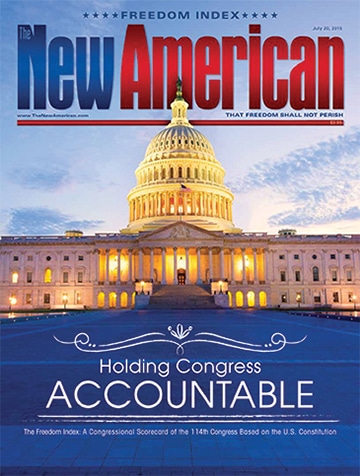Inside Track
DoD Manual Outlines Laws of War, Labels Journalists Possible Targets
The Pentagon has released its new book of instructions for waging war legally, wherein it outlines acceptable ways of killing the enemy. The manual reveals that the term “enemy combatant” has been replaced by the designation “unprivileged belligerents,” and that journalists labeled as such are legitimate targets.
The Department of Defense Law of War Manual, released by DoD General Counsel Stephen Preston, is the first of its kind, serving as an all-in-one guide for all four branches of the military. Prior to this manual, each branch was responsible for writing its own guidelines for engagement.
The booklet addresses a number of war legalities, including rules for warning of an attack. According to the Washington Times, the manual states that the use of surprise in ambushes, sniper attacks, air raids, etc. is acceptable, and that the only group requiring warning of an attack is a civilian population. It also states that it is acceptable to shoot, stab, bomb, explode, or cut the enemy, but use of poison or asphyxiating gases is not permissible.
The section on journalists, however, struck some as peculiar. The manual reads, “In general, journalists are civilians. However, journalists may be members of the armed forces, persons authorized to accompany the armed forces, or unprivileged belligerents.”
Army Lt. Col. Joseph Sowers, a Pentagon spokesman, defended the inclusion of journalists in this section “because the manual does not, itself, create new law.” He continued,
The last sentence simply reflects that, in certain cases, persons who act as journalists may be members of the armed forces, persons authorized to accompany the armed forces or unprivileged belligerents rather than civilians. The fact that a person is a journalist does not prevent that person from becoming an unprivileged belligerent.
Sowers pointed to Inspire magazine, which was started by al-Qaeda and is used to recruit Muslims in the West. “Some people might characterize the persons who put out Inspire magazine as ‘journalists,’ but ‘propagandist’ would be more apt,” Sowers explained. “Members of nonstate armed groups, such as al Qaeda, who also do work that could be characterized as journalism, would continue to be unprivileged belligerents notwithstanding their work as journalists.” For example, enemy spies who use journalism as a cover would still be labeled unprivileged belligerents if caught in the act of espionage.
The Washington Times writes, “A civilian lawyer who opines on war crime cases called the wording ‘an odd and provocative thing for them to write.’”
But Michael Rubin, a Middle East expert at the American Enterprise Institute, claims that the manual is merely a reflection of the ever-changing war on terror. “It’s a realization that not everyone abides by the same standards as we do,” Rubin said. “Just as Hamas uses United Nations schools as weapons depots and Iran uses charity workers for surveillance, many terrorist groups use journalists as cover.”
Citing two al-Qaeda terrorists who posed as journalists to assassinate anti-Taliban leader Ahmad Shah Massoud, Rubin contended, “Journalists are the new consultant. Anyone can claim to be one.”
As for the switch from “unlawful enemy combatant” to “unprivileged belligerents,” Col. Sowers indicated that the shift is merely “stylistic":
Some view the term "unprivileged belligerent" as more precise from the perspective of international law than "unlawful’ combatant" because a person can be an "unprivileged belligerent" without violating the law of war. Our sense is that "unprivileged belligerent" has been the more prevalent usage among DoD practitioners recently, so we’ve sought to use that term rather than unlawful combatant.
Chris Chambers, professor of journalism at Georgetown, indicates that the new terminology is rather confusing because “the Geneva Convention, other tenets of international law, and even United States law — federal courts have spoken on this — doesn’t have this thing called ‘unprivileged belligerents.'"
According to Chambers, the Pentagon has created a new category for journalists without providing an explanation. “You’re either an embedded reporter … a member of the armed forces, or you’re not. You’re a civilian or a soldier,” Chambers told Russia Today. “I don’t understand where this is coming from or what empirical data they’re basing this on.”
Chambers voiced concerns over how this terminology can be used against journalists. “It gives them license to attack or murder journalists they don’t like…. It can also mean people who are there observing as neutrals,” he noted.
Chambers also noted that under these terms, the murder of the journalists that made WikiLeaks famous would be “excused.” He added that he was not surprised by the vagueness of the new language considering the ambiguity of the Obama administration’s definition of the previously used “enemy combatant,” which seemed to include basically any male of a military age who “happens to be there.”
Russia Today reports that the Pentagon did not specify exactly which circumstances would qualify a journalist as an unprivileged belligerent.


